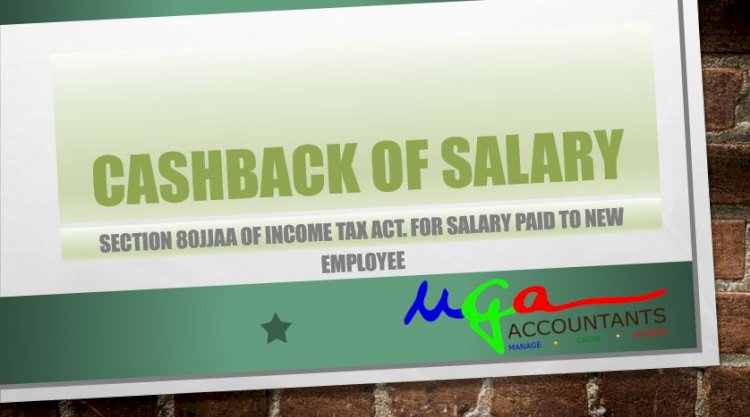Cashback as deduction under Income Tax Act

To solve the unemployment problem in India the Government of India, to promote employment generation activities, had introduced Section 80JJAA under Chp. VIA of Income Tax Act, 1961 which allows for deduction in respect of employment of new employees. This section allow to employer to enjoy tax sops or you can say – “cashback” for payment of salaries to new employees employed by him. These sops were first introduced in the year 2016 but were limited only to some specific assessees. Later on the section was amended through various Finance acts to ultimately allow almost every business to enjoy benefits or rather deduction under this section.
Now, the problem is, many of you including many professionals are unaware of this deduction. Many may know about it but are ignorant of the same as this is a newly added section and a little complicated when compared with common other deductions such as 80C/80D/80G etc.
As per section 80JJAA(1) of Income tax Act only 30% of Additional Employee Cost to be allowed as Deduction for 3 assessment years to aan assesse to whom section 44AB applies
Essencial condition to get deduction
- Only those assesse can claim whom Tax audit is applicable
- It only allowed If a new employee is employed during the previous year for a period of not less than 240 days but in case of assesse engaged in the business of manufacturing the 240 days substituted as 150 days
- In the first year of a new business, emoluments paid or payable to employees employed during that previous year shall be deemed to be the additional employee cost.
- In case of existing business the employee cost is nil if-
If there is no increase in employee on on last previous year
If amount of emoluments paid in cash or other than Account payee Cheque, Draft and electronic clearing system through a bank account.
Employer cannot claim deduction if:
- The business is formed by splitting up, or the reconstruction, of an existing business
- The business is acquired by the assesse by way of transfer from any other person or as a result of any business reorganization
- An employee whose total emoluments are more than twenty-five thousand rupees per month
- An employee for whom the entire contribution is paid by the Government under the Employees' Pension Scheme
- An employee employed for a period of less than two hundred and forty days during the previous year
- An employee who does not participate in the recognised provident fund
- If emoluments paid in cash or any other
What's Your Reaction?





















